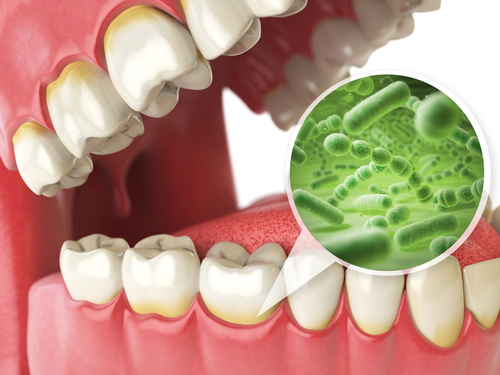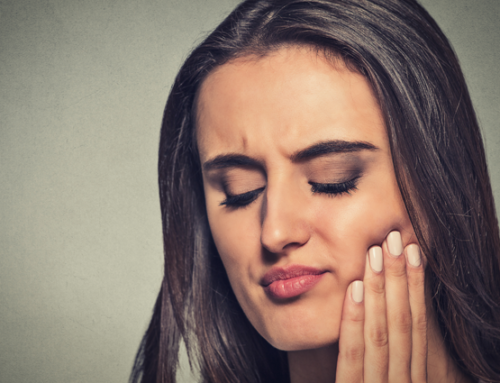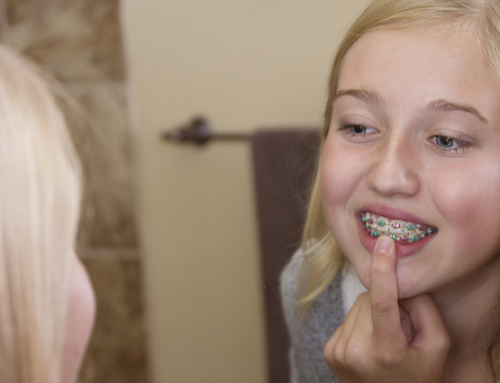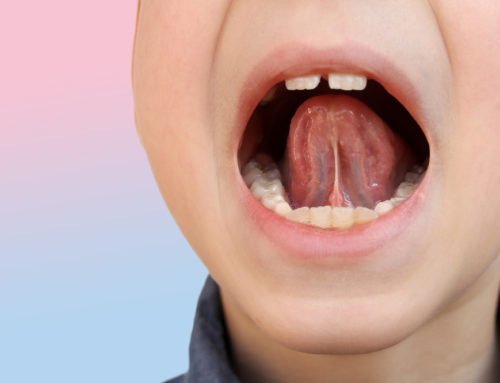How to Treat Chronic Bad Breath
Have you ever caught a strong whiff of bad breath coming from your mouth? If so, don’t worry, you’re not alone. Millions of people in the U.S alone are affected by halitosis (otherwise known as bad breath).
Contrary to popular opinion, bad breath isn’t just something that comes around in the morning. You may have developed bad breath for any number of reasons. Don’t worry though, today we’ll go over a few of the most common reasons and solutions for this condition.
What Causes Bad Breath?
Have you ever wondered why you just can’t kick your halitosis? You might even be brushing twice a day, but it just isn’t working. If so, here are a few factors to consider.
Foods That Cause Bad Breath
Often, something as simple as strong-smelling drinks or foods may be the culprit. For example, coffee, fish, garlic, onions, and spicy food are some of the most common foods that leave lingering odors in your mouth.
- Coffee and alcohol create an environment just right for bacteria growth. They also dry up saliva, which prevents the mouth from cleaning itself.
- Garlic and onions have sulfur compounds that linger in your mouth for hours. They can even get into your bloodstream and are detectable when you breathe.
- Tobacco not only causes foul mouth odor but also contributes to gum disease, which creates a worse odor. Stay away from tobacco entirely if you want a healthy-smelling breath.
- Dairy milk and cheese have amino acids that feed bacteria, causing a foul smell.
- Canned tuna, which we can all say isn’t the best smell to begin with, oxidizes in the can, causing its scent to become even more pungent.
- Horseradish has a chemical compound called isothiocyanate that gives food a unique flavor, but can also cause a pungent smell.
Leftover Particles Of Food
Any food particles left in your mouth for a long period of time can lead to bad breath. Pair that with an inconsistent or lazy dental routine, and you may end up with gum disease (periodontitis).
The best way to prevent this type of bad breath is to focus on good oral hygiene habits and don’t miss your dental check-ups. If you find that brushing and flossing are still not enough, ask your dentist about mouthwash. A mouth rinse has the benefit of being able to reach tiny crevices that your toothbrush can’t. Do keep in mind however, that mouthwash is usually unsuitable for children under the age of six unless otherwise directed by a dentist.
Mouth Bacteria
As you eat, bits of food particles are left behind. Bacteria are then able to eat these particles, producing harmful acid and causing dental decay.
Even worse, however, these bacteria reproduce rapidly. This means that throughout the day, your mouth can grow to house millions of tiny bacteria. Some strains of these bacteria can cause a pungent smell. To combat this, you’ll want to brush twice a day and floss once.
Smoking
You’ve probably had at least one experience in your life when you walked by someone just in time to catch a strong whiff of cigarette smoke. Aside from the smell of tobacco itself, research has also shown that smoking may increase “the synthesis of toxic volatile sulfur compounds in diseased periodontal pockets .”In turn, this sulfur can cause a very strong scent.
Scent aside, however, the toxins in cigarettes have also been found to be highly carcinogenic. This means that they have the potential to cause a variety of cancers, including cancers of the mouth and throat.
Medications
Although it may be starting to sound like it, know that not all bad breath is your fault. In fact, your medications could also be to blame! Many, like antidepressants, create a dry mouth environment that can lead to bacteria growth and foul odors. Having said that, this doesn’t mean that you should stop taking your prescribed medications. Instead, schedule an appointment with your doctor to talk about your concerns. They may recommend an alternative medication or help you brainstorm ways to tackle your halitosis.
Diseases That Cause Halitosis
It’s important to understand that symptoms aren’t just an inconvenience; they can also be an indication of underlying health problems. Here are just a few common conditions that may be linked to halitosis:
- Respiratory Infection
- Gastrointestinal Disorder
- Diabetes
- Gastroesophageal Reflux Disease (Gerd)
- Liver Or Kidney Disease
And more…
Due to this, it’s always best to mention any unusual symptoms to your dentist and primary care provider. They may decide to run further tests. Remember, annual check-ups are the perfect time to ask questions and mention issues like bad breath.
Bad Breath After Wisdom Tooth Extraction
Wisdom tooth extractions are a very common procedure in the U.S. If you’ve had one, you may notice a mildly unpleasant odor for a few days following the procedure.
Some of this scent may be due to leftover blood in your mouth. Remember to wait until the following day to begin rinsing, and do so gently. You want to avoid dislodging the blood clots to the best of your abilities.
The other thing that you may encounter is difficulty doing a thorough brushing. The lack of brushing and flossing could leave bits of food in between your teeth, or even stuck in the surgical sites. This food can contribute to a bad smell from the mouth.
Some medications may also cause dry mouth, which can lead to halitosis.
Regardless, make sure to follow up with your dentist if you notice bad breath for a prolonged period of time. A strong, bad smell and pain could mean there’s an infection. When in doubt, always consult your dentist or oral surgeon.
How To Get Rid Of Bad Breath
Gum, mints, and mouth sprays can cover passing bad breath, but they can’t fully cover up the lasting effects of chronic halitosis. Regardless, bad breath can be simple to treat, as well as rather preventable in some cases. Here are some tips to get you started.
- Practice good oral hygiene habits – brush twice a day and floss at least once. You may also want to try scraping your tongue. Also, don’t forget to visit your dentist 1-2 times a year for a dental check-up.
- Try to avoid smoking and other tobacco. It’s harmful to your overall health.
- Keep your mouth hydrated. Drink lots of water throughout the day, and skip alcohol when possible.
- Cut back on fatty and highly acidic foods. Dairy products tend to be a culprit. Maybe even log your food to see what is triggering your bad breath.
- Are you on antidepressants, blood pressure meds, or even certain antihistamines and pain relievers? These can dry your mouth out and aid in bad breath. Talk to your doctor about your dry mouth concerns.
An astonishing percentage of people have some level of gum disease or gingivitis. Always visit your dentist 1-2 times per year for check-ups. Your dentist will be able to help you discover what may be causing your bad breath, as well as lay out your treatment options for eliminating halitosis.
Have any questions or are curious about the state of your oral health? Request an appointment with us quickly and easily using our “Book Now” button, or feel free to give us a call! It is our mission to ensure every patient has “a smile to build a future on.”
Best Mouthwash For Bad Breath
Mouthwash can be a great add-on to your normal oral care routine. It can help kill off some of those harmful bacteria and freshen your breath all in one go. Knowing what kind of mouthwash you need is important, though.
First off, there are two types of mouthwash (or mouth rinse).
Therapeutic mouthwash is the kind with active ingredients that kill harmful bacteria and help reduce your risk of cavities. Don’t worry, though; this doesn’t mean that you need a prescription. Many therapeutic mouth rinses are sold over the counter.
Cosmetic mouthwash is simply for aesthetics. It freshens your breath temporarily but doesn’t contain anything to combat bacteria. More importantly, this type of mouth rinse can even contain sugar sometimes. This could counteract your careful dental care and increase your risk of cavities.
When shopping for mouthwash, make sure to read labels. Look for something that says “American Dental Association Seal of Acceptance .”This means that the ADA has found that this rinse is safe and has shown efficacy in helping to prevent and reduce plaque and gingivitis.
You may also want to look for phrases such as “plaque control”, or “antiseptic”. If you suffer from dry mouth, you could also try looking for rinses that are alcohol-free. These rinses will most likely contain ingredients such as fluoride.
Visit Snodgrass-King Dentistry in Middle Tennessee
If you’re brushing and flossing daily but still not able to kick the bad breath, don’t hesitate to schedule a dental appointment. Here at Snodgrass-King Dental, we offer dental check-ups for children and adults alike. During the appointment, you can ask any questions you may have about bad breath.
Aside from that, our dental practice also offers crowns, cavity fillings, dentures, and cosmetic treatments such as whitening.
To schedule your first appointment, simply call your closest Snodgrass-King dental office. We have locations all across Middle Tennessee (Mt. Juliet, Murfreesboro, Spring Hill, Franklin, and Cool Springs). In the meantime, feel free to check out our website for other interesting articles and new patient forms.









